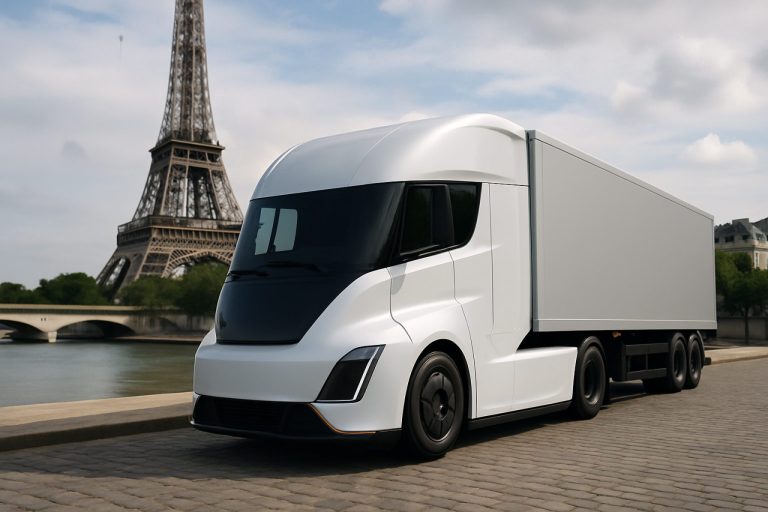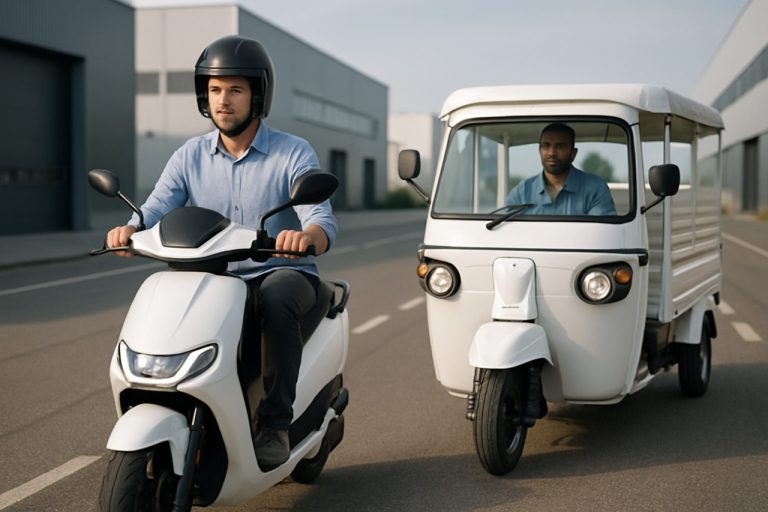
The Future of EV Lease and Financing Services in 2025: How Innovative Models and Digital Platforms Are Transforming the Electric Vehicle Market. Discover What’s Driving Double-Digit Growth and Shaping Consumer Choices.
- Executive Summary: Key Trends and Market Drivers in 2025
- Market Size and Growth Forecast (2025–2030): CAGR and Revenue Projections
- Competitive Landscape: Leading Players and New Entrants
- Innovative Financing Models: Subscription, Pay-Per-Use, and Beyond
- Digital Transformation: Online Platforms and Seamless Customer Journeys
- OEM and Financial Institution Strategies: Partnerships and Product Offerings
- Regulatory Environment: Incentives, Compliance, and Policy Impact
- Consumer Preferences: Adoption Barriers and Motivators
- Technology Integration: Telematics, AI, and Risk Assessment
- Future Outlook: Opportunities, Challenges, and Strategic Recommendations
- Sources & References
Executive Summary: Key Trends and Market Drivers in 2025
The electric vehicle (EV) lease and financing services sector is undergoing rapid transformation in 2025, driven by surging EV adoption, evolving consumer preferences, and strategic initiatives from automakers and financial institutions. As EVs become increasingly mainstream, leasing and financing options are emerging as critical enablers for both private and fleet customers, lowering the barriers to entry and accelerating the transition to electrified mobility.
A key trend in 2025 is the expansion of dedicated EV leasing programs by major automakers. Companies such as Ford Motor Company, Tesla, Inc., and BMW AG are offering tailored lease packages with flexible terms, reflecting the rapid pace of battery technology improvements and residual value uncertainties. These programs often include bundled services such as home charging installation, maintenance, and software updates, enhancing the overall value proposition for lessees.
Financial institutions and captive finance arms are also innovating to support the EV transition. Volkswagen Financial Services and Toyota Financial Services have expanded their portfolios to include specialized EV loans and leasing products, often with preferential rates or incentives tied to sustainability goals. In parallel, new entrants and fintech platforms are leveraging digital tools to streamline credit assessment and contract management, making EV financing more accessible and transparent.
Fleet electrification is a major driver of growth in the sector. Companies such as Hertz Global Holdings, Inc. and Enterprise Holdings, Inc. are scaling up their EV fleets through large-scale leasing agreements, responding to both regulatory pressures and corporate sustainability commitments. These developments are prompting leasing providers to develop new products that address total cost of ownership, charging infrastructure, and vehicle lifecycle management.
Looking ahead, the outlook for EV lease and financing services remains robust. The sector is expected to benefit from ongoing government incentives, tightening emissions regulations, and the introduction of more affordable EV models. As battery costs decline and residual value forecasting improves, leasing terms are likely to become even more attractive. Industry leaders are expected to further integrate digital platforms, data analytics, and value-added services, positioning leasing and financing as pivotal components of the EV ecosystem through 2025 and beyond.
Market Size and Growth Forecast (2025–2030): CAGR and Revenue Projections
The market for Electric Vehicle (EV) lease and financing services is poised for robust expansion between 2025 and 2030, driven by accelerating EV adoption, supportive regulatory frameworks, and evolving consumer preferences for flexible vehicle ownership models. As automakers and financial institutions intensify their focus on electrification, leasing and financing solutions are becoming pivotal in lowering the entry barriers for both private and fleet customers.
By 2025, the global EV lease and financing market is projected to reach a value in the tens of billions of US dollars, with a compound annual growth rate (CAGR) estimated between 15% and 20% through 2030. This growth is underpinned by the rapid increase in EV sales, which are expected to account for over 20% of new car sales worldwide by 2025, according to leading automakers and industry bodies. The expansion of EV-specific leasing programs by major players such as Volkswagen AG, BMW Group, and Tesla, Inc. is further catalyzing market development, as these companies integrate financial services with their electrification strategies.
Leasing is particularly attractive in the EV segment due to concerns over battery degradation, rapid technological advancements, and uncertain residual values. Financial arms of automakers, such as Toyota Financial Services and Ford Motor Company, are expanding their EV lease portfolios, offering tailored products that include battery warranties, charging solutions, and flexible mileage options. Additionally, independent financial institutions and mobility service providers are entering the market, further intensifying competition and innovation.
In Europe, regulatory mandates such as the EU’s Fit for 55 package and national incentives are accelerating the shift to EVs, with leasing and financing services playing a crucial role in fleet electrification. Companies like LeasePlan Corporation N.V. and Alphabet International GmbH (a BMW Group company) are expanding their EV offerings, targeting both corporate and private customers with comprehensive packages that include maintenance, insurance, and charging infrastructure.
Looking ahead, the EV lease and financing market is expected to see continued double-digit growth through 2030, with revenue projections surpassing $50 billion globally by the end of the decade. The market outlook is further strengthened by the entry of new digital-first platforms and fintechs, which are leveraging data analytics and online channels to streamline the customer journey and offer personalized financing solutions. As the EV ecosystem matures, lease and financing services will remain a critical enabler of mass-market adoption, supporting the transition to sustainable mobility worldwide.
Competitive Landscape: Leading Players and New Entrants
The competitive landscape for electric vehicle (EV) lease and financing services in 2025 is characterized by rapid expansion, strategic partnerships, and the entry of both established automotive finance arms and innovative fintech startups. As EV adoption accelerates globally, the demand for flexible and affordable ownership models is reshaping the sector, with a focus on lowering the total cost of ownership and addressing consumer concerns about battery longevity and residual value.
Major automakers have significantly expanded their captive finance operations to support EV sales. Ford Motor Company and its financing arm, Ford Credit, have introduced specialized EV lease programs, including options for battery replacement and technology upgrades. Similarly, General Motors through GM Financial, and Toyota Motor Corporation via Toyota Financial Services, have rolled out tailored leasing products for their growing EV lineups, often featuring incentives such as reduced down payments and bundled charging solutions.
European automakers are also prominent players. Volkswagen AG has leveraged its financial services division to offer flexible EV leasing and subscription models, particularly in key markets like Germany and the UK. BMW AG and Mercedes-Benz Group AG have expanded their digital financing platforms, enabling customers to configure, apply for, and manage EV leases entirely online, reflecting a broader industry shift toward digitalization.
New entrants and non-traditional players are intensifying competition. Tesla, Inc. continues to refine its direct-to-consumer leasing model, offering competitive rates and streamlined online approvals. Fintech startups such as LeasePlan Corporation N.V. and ALD Automotive are expanding their EV portfolios, targeting both individual consumers and corporate fleets with flexible terms, mileage packages, and integrated charging solutions.
In Asia, Nissan Motor Co., Ltd. and Toyota Motor Corporation are leveraging their financial subsidiaries to promote EV adoption through innovative lease-to-own and battery leasing models, particularly in Japan and China. Chinese companies such as BYD Company Limited are also entering the leasing market, often in partnership with local banks and mobility providers.
Looking ahead, the sector is expected to see further innovation, with the integration of telematics, dynamic pricing based on usage, and the rise of all-inclusive EV subscriptions. As battery technology evolves and residual values stabilize, both incumbents and new entrants are likely to expand their offerings, making EVs more accessible to a broader range of consumers and businesses.
Innovative Financing Models: Subscription, Pay-Per-Use, and Beyond
The landscape of electric vehicle (EV) lease and financing services is rapidly evolving in 2025, driven by the need to lower barriers to EV adoption and address consumer concerns about cost, flexibility, and technology obsolescence. Traditional auto loans and leases are being supplemented—and in some cases, challenged—by innovative models such as vehicle subscriptions, pay-per-use schemes, and flexible leasing arrangements. These models are being piloted and scaled by automakers, financial institutions, and mobility startups, reflecting a broader shift toward service-oriented mobility.
Vehicle subscription services, which bundle the use of an EV with insurance, maintenance, and roadside assistance for a single monthly fee, have gained traction among urban and tech-savvy consumers. Major automakers such as Volkswagen AG and Hyundai Motor Company have expanded their subscription offerings in key markets, allowing customers to switch between models or cancel with short notice. These programs are designed to address concerns about battery degradation and rapid technological change, offering a hedge against long-term ownership risks.
Pay-per-use and mileage-based financing models are also emerging, particularly in Europe and North America. Companies like Stellantis N.V. have introduced flexible leasing options where monthly payments are tied to actual vehicle usage, appealing to customers with variable driving needs. This approach is supported by advances in telematics and digital payment systems, enabling real-time tracking and billing. Such models are expected to grow as urban mobility patterns shift and as more consumers seek alternatives to traditional car ownership.
Financial institutions are playing a pivotal role in this transformation. BMW Group and its financial services arm, for example, have launched tailored EV leasing products with lower upfront costs and integrated charging solutions. Similarly, Tesla, Inc. continues to refine its direct-to-consumer leasing and subscription programs, leveraging its digital ecosystem to streamline approvals and vehicle delivery.
Looking ahead, the outlook for innovative EV financing models is robust. As battery prices continue to decline and residual value uncertainty diminishes, more flexible and customer-centric offerings are expected to proliferate. Automakers and financial partners are likely to deepen collaborations, integrating charging, software updates, and even energy services into bundled mobility packages. By 2027, these models could account for a significant share of new EV transactions, particularly among younger and urban consumers seeking convenience and adaptability.
Digital Transformation: Online Platforms and Seamless Customer Journeys
The digital transformation of EV lease and financing services is accelerating rapidly in 2025, driven by consumer demand for convenience, transparency, and speed. Traditional auto financing models are being disrupted as both established automakers and new entrants invest heavily in online platforms that streamline the entire customer journey—from vehicle selection to contract signing and delivery.
Major automakers such as Ford Motor Company and Tesla, Inc. have expanded their digital retail capabilities, allowing customers to configure, finance, and lease electric vehicles (EVs) entirely online. Tesla, Inc. continues to lead with its direct-to-consumer model, offering a seamless digital experience where customers can select a vehicle, apply for financing or leasing, and arrange delivery without visiting a dealership. Similarly, Ford Motor Company has enhanced its online platform to support digital leasing and financing, integrating real-time credit approvals and personalized payment options.
Financial institutions and specialized mobility providers are also innovating. BMW Group and its financial services arm have introduced digital-first leasing solutions for their EV lineup, enabling customers to complete the entire process remotely. Volkswagen AG has launched online leasing and subscription services for its ID. series, reflecting a broader industry shift toward flexible, user-centric mobility solutions.
Third-party digital platforms are gaining traction as well. Companies like Ally Financial Inc. and Santander Consumer Finance are partnering with automakers and dealerships to offer integrated online financing tools, including instant credit decisions and digital document signing. These platforms leverage advanced analytics and AI to provide tailored offers, improving approval rates and customer satisfaction.
Looking ahead, the outlook for digital EV lease and financing services is robust. The adoption of end-to-end online journeys is expected to become the industry standard by the late 2020s, with further integration of digital identity verification, e-signatures, and real-time payment processing. Automakers and financial institutions are investing in omnichannel experiences, ensuring that customers can seamlessly transition between online and offline touchpoints as needed. As EV adoption grows and digital natives become a larger share of the market, the demand for transparent, flexible, and fully digital leasing and financing solutions will continue to rise.
OEM and Financial Institution Strategies: Partnerships and Product Offerings
The landscape of electric vehicle (EV) lease and financing services is rapidly evolving in 2025, as original equipment manufacturers (OEMs) and financial institutions intensify their collaboration to accelerate EV adoption. These partnerships are crucial for addressing consumer concerns about upfront costs, battery depreciation, and residual value uncertainty, which have historically hindered EV market penetration.
Major OEMs are increasingly launching dedicated financial arms or expanding existing ones to offer tailored EV leasing and financing products. BMW Group, through its financial services division, has introduced flexible lease terms and subscription models for its electric models, aiming to lower entry barriers and provide customers with options to upgrade as battery technology advances. Similarly, Mercedes-Benz Group has expanded its “Mercedes-Benz Mobility” offerings, including battery-specific warranties and guaranteed buyback programs, to enhance consumer confidence in EV ownership.
In the United States, Ford Motor Company has partnered with major banks and its own Ford Credit division to provide competitive lease rates and innovative financing for its growing EV lineup, such as the Mustang Mach-E and F-150 Lightning. These programs often include incentives like home charger installation financing and bundled maintenance packages, reflecting a holistic approach to EV adoption.
Japanese OEMs are also active in this space. Nissan Motor Corporation continues to leverage its global financial services arm to offer battery leasing and flexible payment plans for models like the Nissan LEAF and Ariya, particularly in Europe and Asia. Meanwhile, Toyota Motor Corporation is piloting “Kinto” subscription services in select markets, bundling insurance, maintenance, and charging access into a single monthly payment.
Financial institutions are increasingly forming joint ventures with OEMs or launching their own EV-specific products. Volkswagen Financial Services has rolled out “Green Leasing” programs across Europe, offering lower rates for EVs and plug-in hybrids, while also investing in charging infrastructure partnerships. In China, Industrial and Commercial Bank of China (ICBC) collaborates with domestic automakers to provide low-interest loans and leasing for new energy vehicles, supporting the government’s ambitious electrification targets.
Looking ahead, the next few years are expected to see further innovation in EV financing, including pay-per-use models, battery-as-a-service (BaaS) schemes, and digital platforms that streamline the customer journey. As regulatory incentives and consumer demand grow, OEMs and financial institutions will likely deepen their partnerships, making EVs more accessible and affordable for a broader range of customers.
Regulatory Environment: Incentives, Compliance, and Policy Impact
The regulatory environment in 2025 is playing a pivotal role in shaping the landscape of electric vehicle (EV) lease and financing services. Governments across North America, Europe, and Asia are intensifying their efforts to accelerate EV adoption, with a particular focus on making EVs more accessible through financial incentives and compliance-driven policies. These measures are directly influencing the structure and attractiveness of EV leasing and financing products.
In the United States, the Inflation Reduction Act (IRA) continues to be a cornerstone policy, offering federal tax credits for EVs that are also applicable to leased vehicles. This has led to a surge in leasing programs, as lessors can claim the tax credit and pass on the savings to consumers through lower monthly payments. Major automakers such as Ford Motor Company and General Motors have expanded their leasing options to capitalize on these incentives, making EVs more financially accessible to a broader customer base. Additionally, the U.S. Treasury’s guidance on the transferability of tax credits to lessors has further streamlined the process, encouraging more financial institutions to enter the EV leasing market.
In Europe, the regulatory push is even more pronounced. The European Union’s Fit for 55 package and the impending Euro 7 emissions standards are compelling automakers and financial service providers to prioritize zero-emission vehicles. Countries such as Germany and France continue to offer substantial subsidies and tax breaks for EV leases, while also imposing stricter fleet emission targets. This has prompted leading European automakers like Volkswagen AG and Stellantis N.V. to partner with captive finance arms and third-party banks to develop innovative leasing and subscription models tailored to both private and corporate customers.
In China, the world’s largest EV market, government policies remain highly supportive of EV adoption through a combination of purchase subsidies, tax exemptions, and favorable loan terms. State-backed banks and financial institutions are increasingly collaborating with domestic manufacturers such as BYD Company Limited and Geely Automobile Holdings to offer competitive leasing and financing packages, further lowering the entry barrier for consumers.
Looking ahead, the regulatory environment is expected to remain dynamic, with further tightening of emissions standards and the introduction of new incentives likely. This will continue to drive innovation in EV lease and financing services, with a growing emphasis on flexible, digital-first solutions and cross-border harmonization of incentives. As compliance requirements evolve, financial service providers and automakers will need to remain agile, leveraging regulatory support to expand their EV portfolios and meet ambitious electrification targets.
Consumer Preferences: Adoption Barriers and Motivators
The landscape of electric vehicle (EV) adoption in 2025 is increasingly shaped by the evolution of lease and financing services, which play a pivotal role in addressing consumer barriers and motivating uptake. As EVs continue to command higher upfront prices compared to internal combustion engine vehicles, flexible financial solutions have become essential in making EV ownership accessible to a broader demographic.
Major automakers and financial institutions are expanding their EV-specific leasing and financing programs to lower the entry barrier. For instance, Ford Motor Company has introduced specialized EV lease offers for its Mustang Mach-E and F-150 Lightning, often featuring reduced down payments and competitive monthly rates. Similarly, Tesla, Inc. continues to refine its direct-to-consumer leasing model, allowing customers to access its Model 3 and Model Y with minimal upfront costs and streamlined digital applications.
In 2025, a notable trend is the rise of flexible subscription models and balloon financing, which provide consumers with options to upgrade vehicles or exit contracts early—addressing concerns about rapid battery technology advancements and residual value uncertainty. BMW AG and Hyundai Motor Company have both piloted subscription services in select markets, bundling insurance, maintenance, and charging into a single monthly payment, thus simplifying the ownership experience.
Financial arms of automakers, such as General Motors’ GM Financial and Volkswagen Group’s Volkswagen Financial Services, are also offering tailored products for EVs, including lower interest rates for green vehicles and incentives for returning lessees who upgrade to newer EV models. These programs are often complemented by partnerships with charging infrastructure providers, further reducing the perceived inconvenience of EV ownership.
Despite these advances, consumer surveys conducted by industry bodies such as the European Automobile Manufacturers’ Association indicate that concerns about total cost of ownership, battery longevity, and resale value persist. However, the proliferation of government-backed incentives and tax credits, when combined with innovative financing, is expected to accelerate EV adoption through 2025 and beyond.
Looking ahead, the outlook for EV lease and financing services is robust. Automakers are expected to further integrate digital platforms, enabling instant credit approvals and personalized offers. As battery costs decline and secondary EV markets mature, leasing and financing terms are likely to become even more favorable, making EVs an increasingly attractive option for mainstream consumers.
Technology Integration: Telematics, AI, and Risk Assessment
The integration of advanced technologies such as telematics, artificial intelligence (AI), and data-driven risk assessment is rapidly transforming the landscape of electric vehicle (EV) lease and financing services in 2025. As the EV market matures, leasing and financing providers are leveraging these technologies to enhance customer experience, optimize asset management, and refine credit and risk evaluation processes.
Telematics systems, which collect real-time data on vehicle usage, battery health, and driving behavior, are increasingly embedded in EVs by leading manufacturers and fleet operators. Companies like Tesla, Inc. and Bayerische Motoren Werke AG (BMW) equip their EVs with sophisticated telematics platforms, enabling lessors and financiers to monitor vehicle condition, predict maintenance needs, and assess residual value with greater accuracy. This data-driven approach allows for more flexible lease terms and personalized financing offers, as well as improved end-of-lease vehicle remarketing strategies.
AI-powered analytics are also being adopted by major automotive finance arms such as Volkswagen Financial Services AG and Toyota Financial Services Corporation. These organizations utilize machine learning algorithms to analyze vast datasets from telematics, credit histories, and market trends, enabling more precise risk assessment and dynamic pricing models. For example, AI can identify patterns in driver behavior that correlate with lower default risk or predict the impact of regional policy changes on EV demand and residual values.
Risk assessment models are evolving to incorporate not only traditional credit metrics but also real-time vehicle and user data. This shift is particularly relevant for new entrants and digital-first platforms such as Polestar and Nissan Motor Co., Ltd., which are piloting subscription and flexible leasing models. By integrating telematics and AI, these companies can offer tailored products to a broader customer base, including those with limited credit history or non-traditional employment.
Looking ahead, the next few years are expected to see further convergence of telematics, AI, and risk analytics in EV leasing and financing. Industry bodies such as the European Automobile Manufacturers’ Association (ACEA) anticipate that regulatory support for data sharing and digital identity will accelerate innovation in this space. As a result, customers can expect increasingly transparent, adaptive, and accessible EV lease and finance solutions, while providers benefit from enhanced portfolio management and reduced risk exposure.
Future Outlook: Opportunities, Challenges, and Strategic Recommendations
The landscape for electric vehicle (EV) lease and financing services is poised for significant transformation in 2025 and the years immediately following, driven by rapid EV adoption, evolving consumer preferences, and regulatory shifts. As automakers and financial institutions adapt to the unique characteristics of EVs—such as higher upfront costs, rapid technological advancements, and uncertain residual values—new opportunities and challenges are emerging.
One of the most prominent opportunities lies in the growing demand for flexible ownership models. As EV technology evolves quickly, consumers are increasingly attracted to leasing as a way to access the latest models without long-term commitment. Major automakers such as Ford Motor Company, Tesla, Inc., and Bayerische Motoren Werke AG (BMW) have expanded their EV lease offerings, often with incentives to make monthly payments competitive with internal combustion engine vehicles. In 2025, these programs are expected to become more sophisticated, with options for battery leasing, mileage flexibility, and bundled charging solutions.
Financial institutions and captive finance arms are also innovating. Volkswagen Financial Services and GM Financial are piloting digital-first platforms that streamline the application and approval process, while integrating sustainability metrics into credit assessments. These efforts are designed to attract environmentally conscious consumers and fleet operators, a segment projected to grow as corporate sustainability targets tighten.
However, challenges persist. The uncertain residual value of EVs—due to rapid battery improvements and fluctuating used EV demand—complicates lease pricing and risk management. Companies like Nissan Motor Corporation and Hyundai Motor Company are experimenting with guaranteed buyback programs and end-of-lease battery health assessments to mitigate these risks. Additionally, the integration of government incentives and tax credits into lease structures remains complex, varying widely by region and subject to policy changes.
Looking ahead, strategic recommendations for stakeholders include investing in digital platforms for seamless customer experiences, developing partnerships with charging infrastructure providers, and creating flexible, transparent lease terms that address consumer concerns about battery longevity and technology obsolescence. Automakers and financiers should also collaborate with industry bodies such as the European Automobile Manufacturers’ Association (ACEA) to advocate for harmonized regulations and clearer incentive frameworks.
In summary, the future of EV lease and financing services in 2025 and beyond will be shaped by innovation, collaboration, and adaptability. Those who proactively address the evolving needs of EV customers and the unique financial dynamics of electric mobility will be best positioned to capture market share in this rapidly expanding sector.
Sources & References
- Hertz Global Holdings, Inc.
- Volkswagen AG
- LeasePlan Corporation N.V.
- General Motors
- ALD Automotive
- Nissan Motor Co., Ltd.
- BYD Company Limited
- Hyundai Motor Company
- Stellantis N.V.
- Volkswagen AG
- Santander Consumer Finance
- Toyota Motor Corporation
- Industrial and Commercial Bank of China
- Geely Automobile Holdings
- Volkswagen Group
- European Automobile Manufacturers’ Association
- Polestar
- GM Financial



